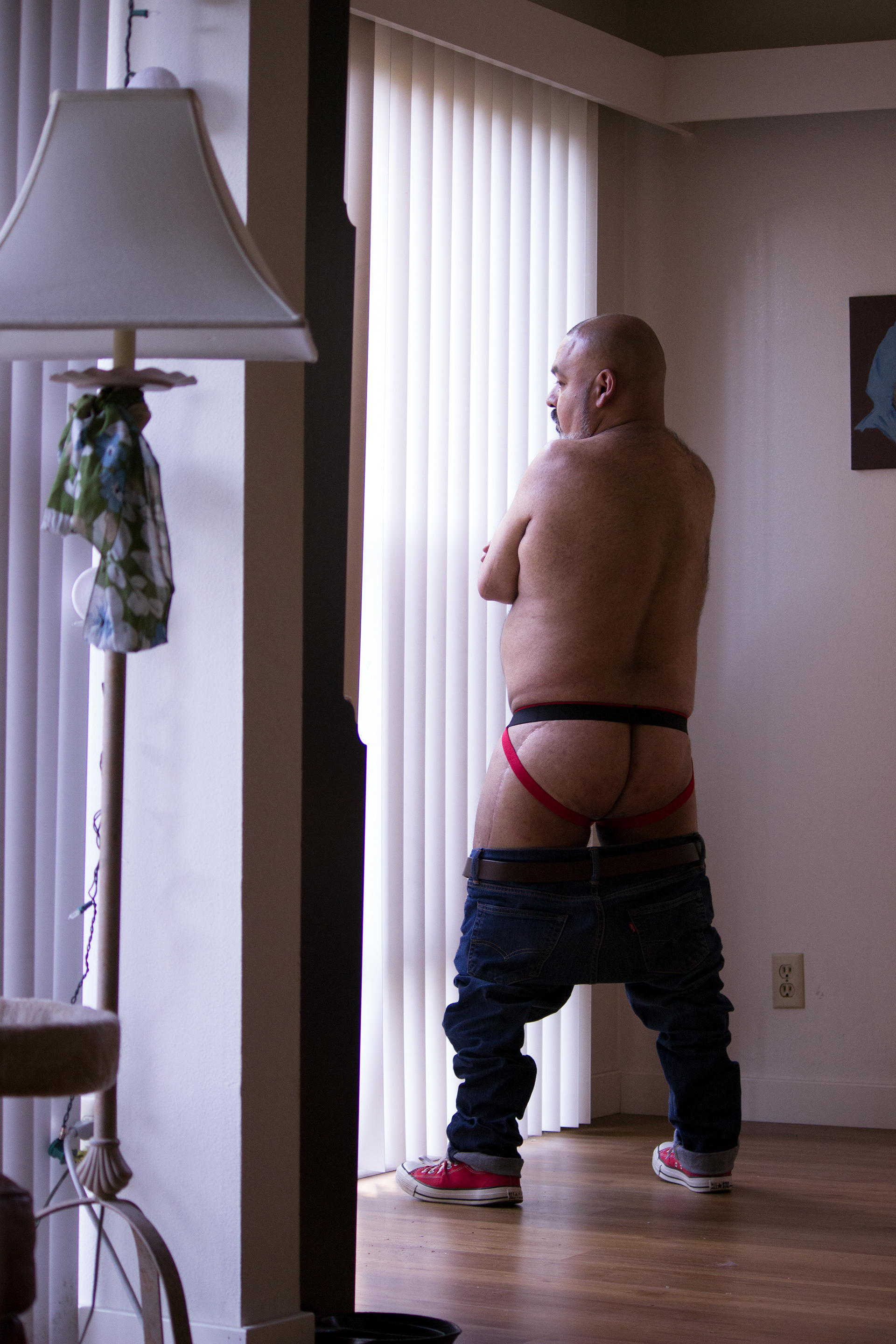
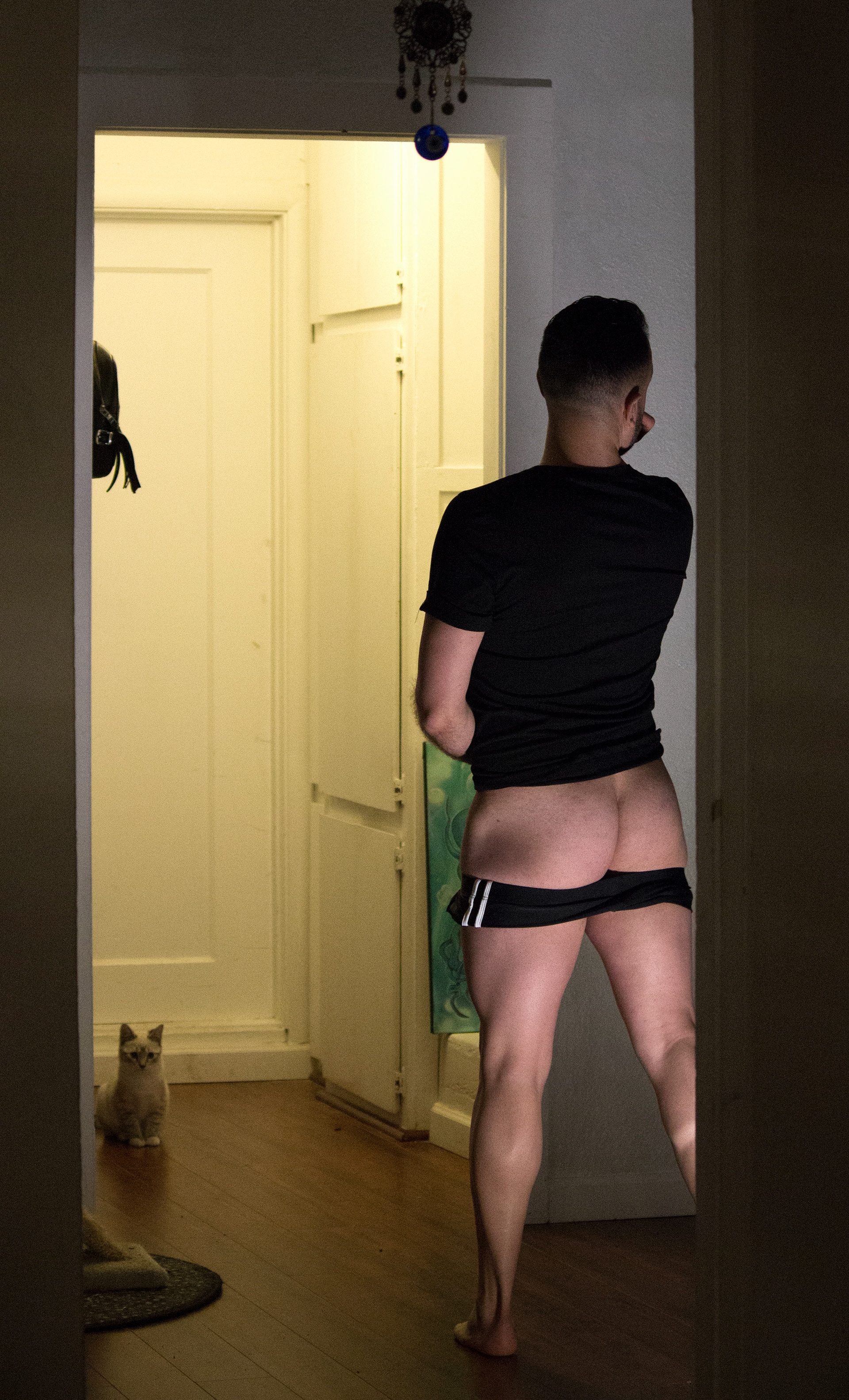
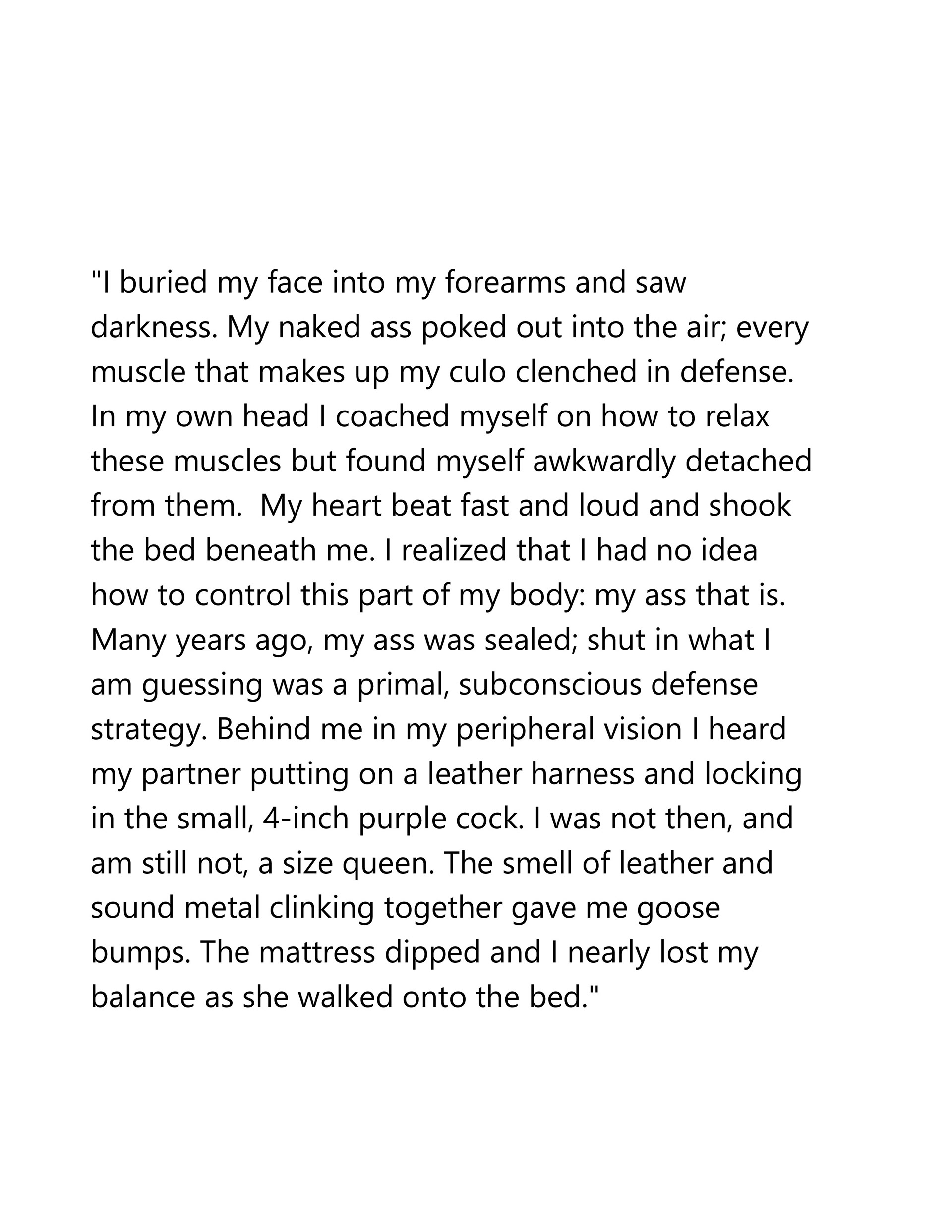
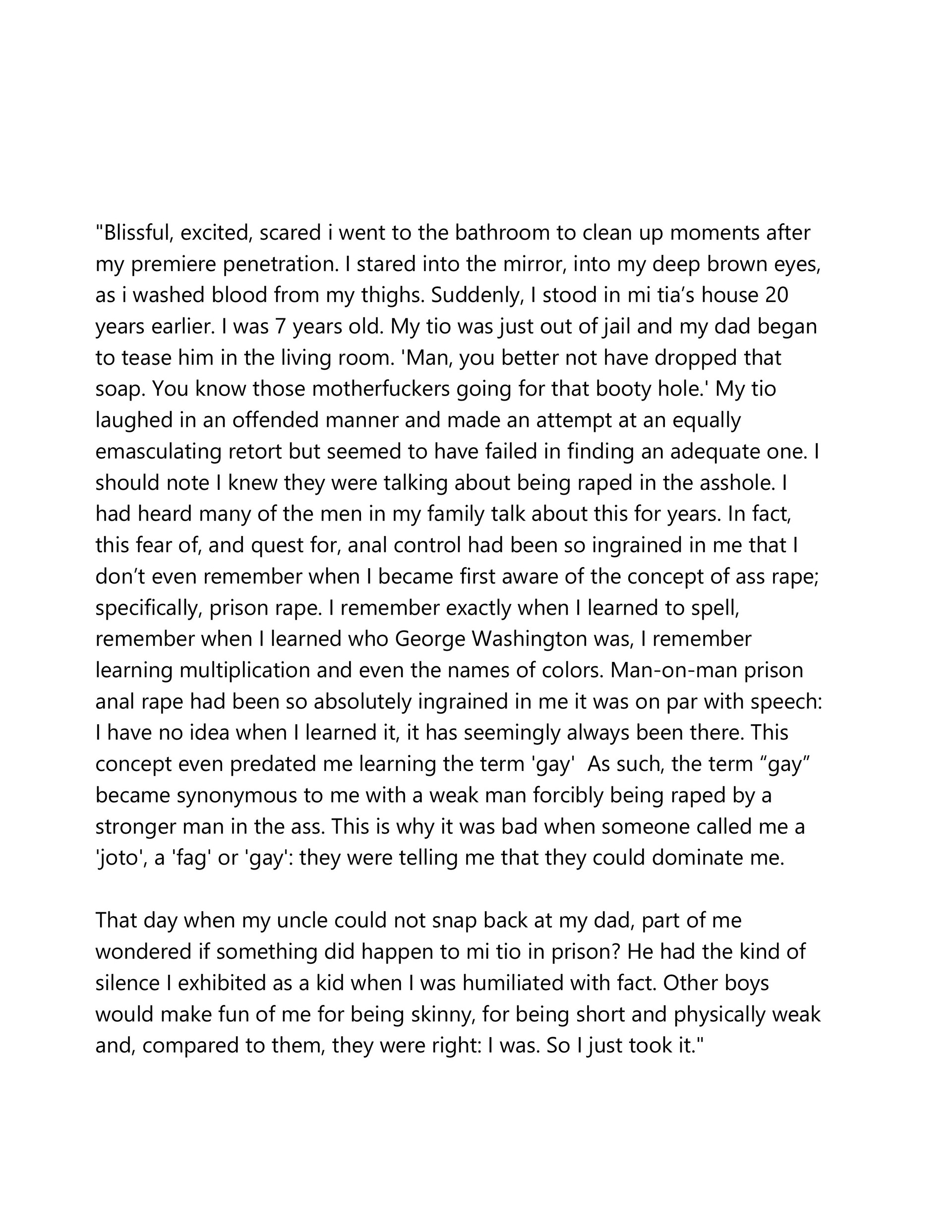
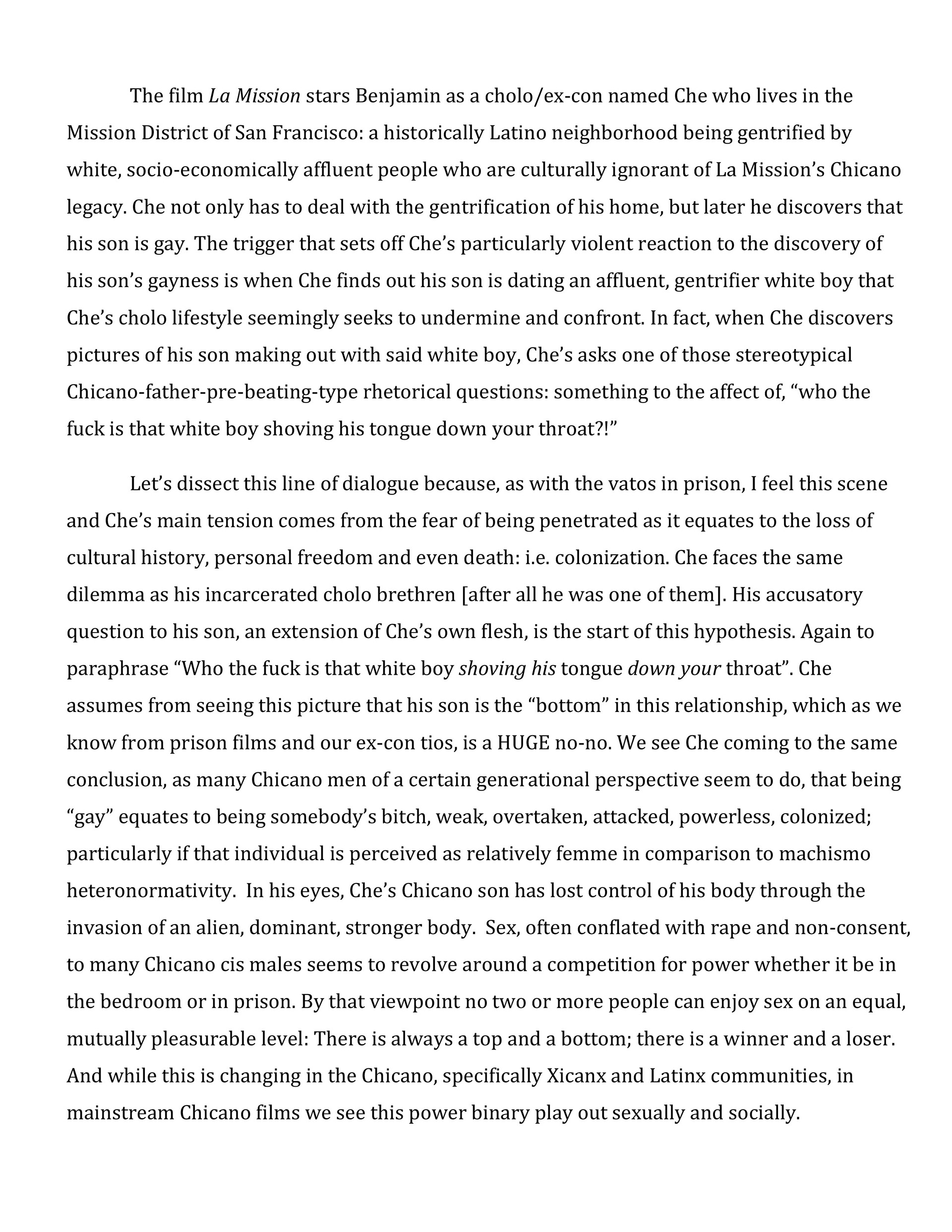
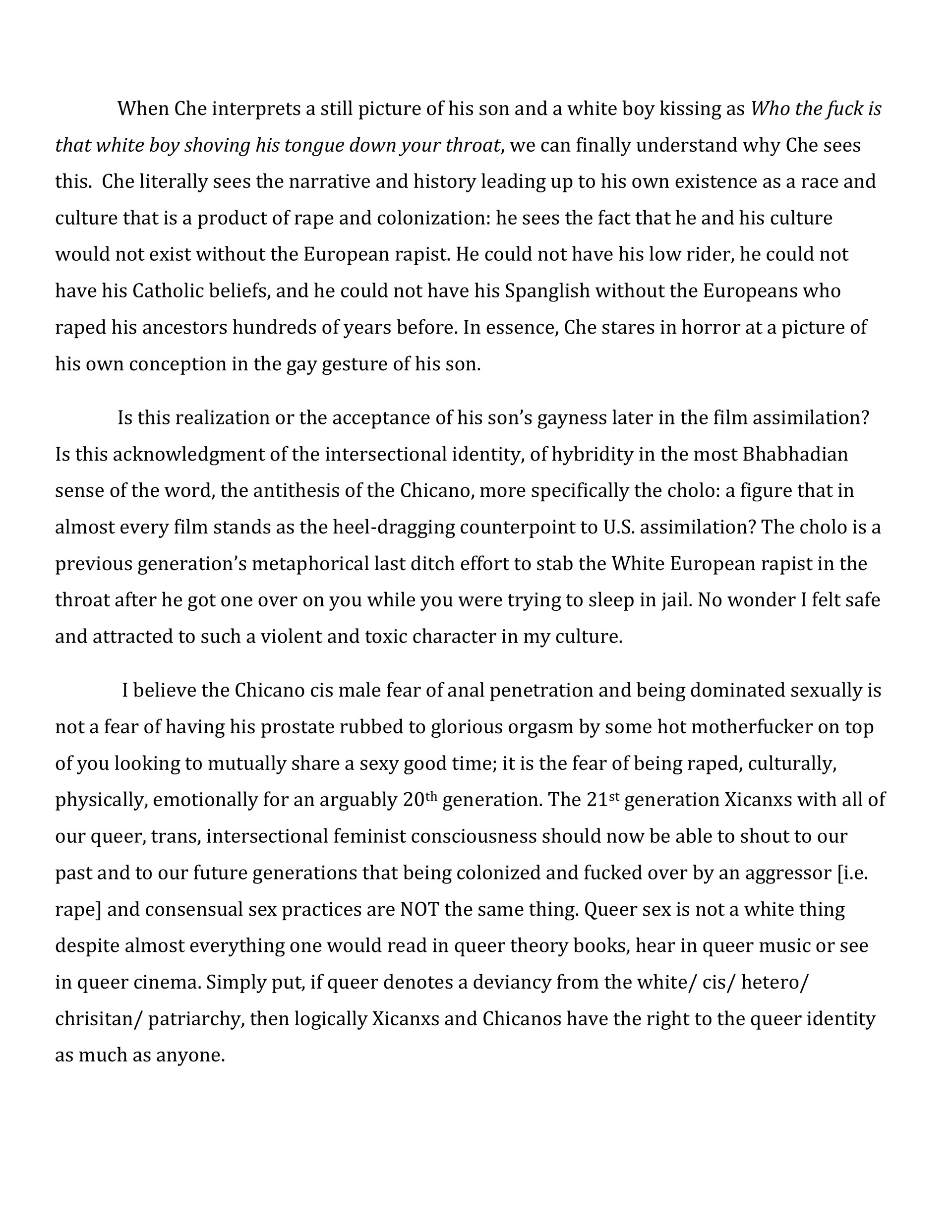
This essay and photo series examines the Chicano male fear of anal penetration as exemplified by the author's personal narratives with assault and encounters with incarcerated anal-phobic relatives, the film La Mission [2010] and prison rape as depicted in Chicano films like American Me and Blood In Blood Out. The essay proposes that this deep rooted fear of being anally penetrated is not in fact a fear of being brought to orgasm through anal penetration, but instead is residual generational trauma left over from colonization and rape of the indigenous ancestors of male Chicanos. This essay proposes that through the embracing of alternative sex practices, LGBTQ Latinx community members, and a rejection of machismo and patriarchy; pleasure, consent and safety can be part of the male chicano's body and sexual activity.





